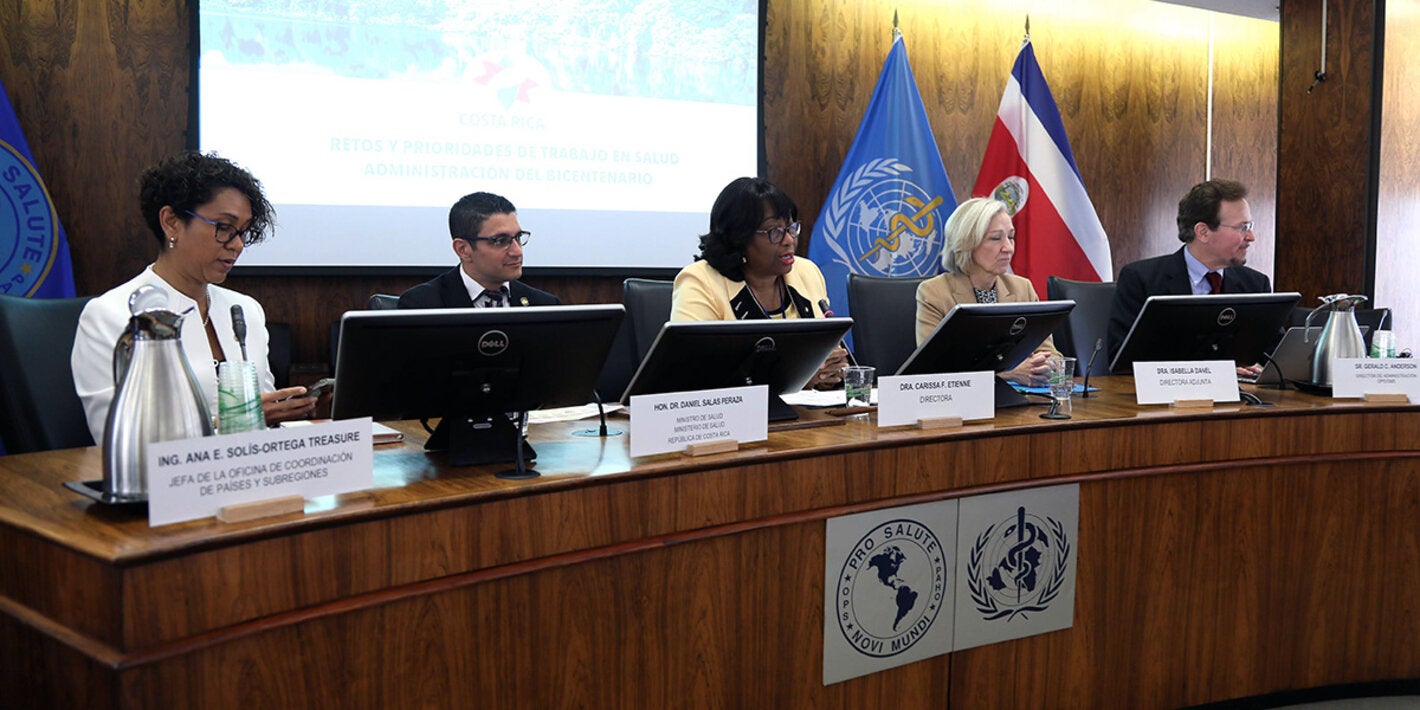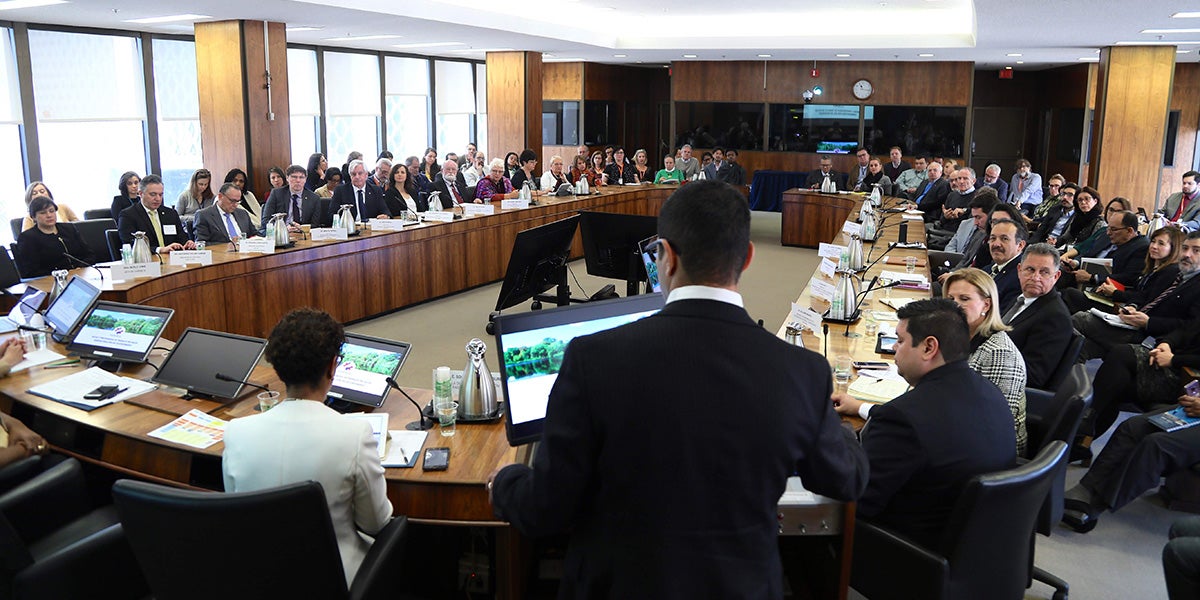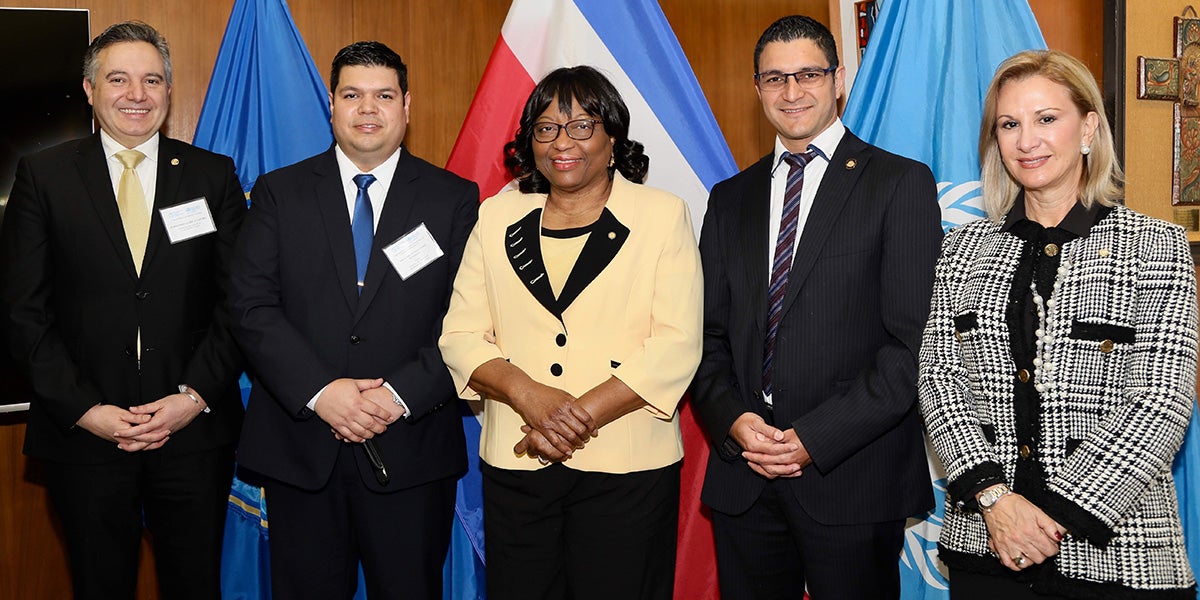
Washington D.C. 5 February 2019 (PAHO/WHO) – Tackling NCDs and ensuring universal access to quality health care were among the priority themes addressed by the Costa Rican Minister of Health, Dr. Daniel Salas Peraza, during his visit to the Pan American Health Organization’s (PAHO) headquarters in Washington D.C this week.
Costa Rica has made significant inroads to expand health coverage in recent years, increase life expectancy, and reduce infant mortality and maternal mortality. During the Minister’s visit, the PAHO Director, Carissa F. Etienne, highlighted that Costa Rica’s priorities are well aligned with the PAHO priorities and praised the country for its continued efforts to improve health care.
Despite its progress in the field of health, however, Dr. Salas Peraza also underscored some of the country’s most urgent health problems including the prevalence of non-communicable diseases (NCDs), and the ongoing issue of health inequity and inequality.
In order to address this epidemic of NCDs, Dr. Peraza highlighted the country’s work towards developing guides for patients with chronic illnesses at the primary-care level; the creation of a multi-sectoral letter of commitment to addressing childhood and adolescent obesity; and an initiative to regulate the use of saturated fats, sugars and sodium in food served in public schools. The PAHO representative for Costa Rica, Dr. María Dolores Pérez-Rosales also expressed PAHO’s commitment to continue working with the country in addressing NCDs, particularly in supporting Costa Rica’s National Tobacco Control Program.
Dr. Salas Peraza also highlighted equity and solidarity as a priority area of focus for the Ministry of Health. Effective access to health services for the 7.2% of the population living in extreme poverty, certain indigenous groups and for seasonal and migrant workers continues to be a challenge. This is being addressed through several initiatives, such as the National Health Plan for Afro-descendants and the country’s ongoing collaboration with PAHO to address rural access to health.
The Minister of Health also spoke about the country’s increased efforts to reduce cases of malaria and move towards elimination of this disease as a public health problem. This is being achieved through increased epidemiological surveillance, as well as through the development of rapid testing and treatment in hard to reach areas. Dr. Etienne emphasized that PAHO will continue to collaborate with Costa Rica on its journey towards malaria elimination. “I look forward to travelling to Costa Rica to hand you the certificate of malaria elimination,” she said.
According to Dr. Pérez-Rosales, PAHO is working with Costa Rica on five priority areas: The promotion of universal health, particularly through an initiative to strengthen health care planning, administration and management throughout the country; the strengthening of human resources for health; tackling chronic illnesses, such as NCDs; integral risk management; and equity and social determinants of health.





